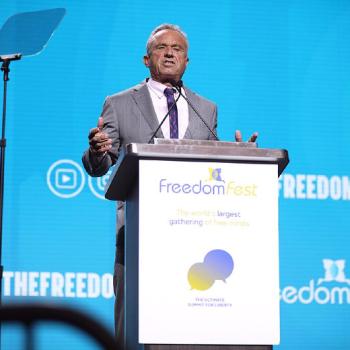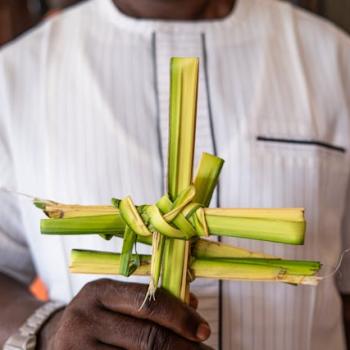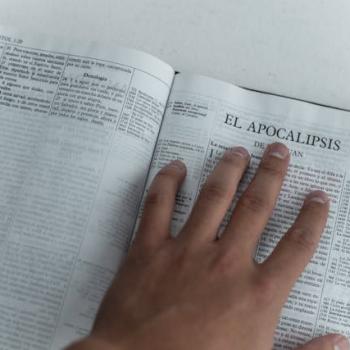T. S. Eliot never lived to see his verses on felines adapted into that Broadway musical, which perhaps is a good thing. T.S. Eliot was at heart a seriously spiritual man whose greatest poetic contributions mined human misery to find hope in the God who shared that misery. Thomas Stearns Eliot was not British by birth, but American, born in St. Louis in 1888 to a family descended from New England stock. He attended New England private schools and finished Harvard in three years. Eliot won a traveling fellowship to Germany in 1914 where he barely escaped getting caught by World War I and made his way to Britain. After a year at Oxford, Eliot taught history, Latin, French, German, arithmetic, drawing, and swimming before becoming a banker and eventually, a book editor.
His vocational vacillations reflected a profound disillusionment he felt over civilization's demise following World War I, a disillusionment that found expression in a 1922 poem called The Waste Land. It gained Eliot international recognition for vividly voicing the hopelessness everyone felt. Eliot portrayed a fearful world pursuing barren lusts, yearning desperately for any sign of redemption. It is considered by many to be the most influential poem of the 20th century. Listen for the biblical imagery in this portion:
After the torchlight red on sweaty faces
After the frosty silence in the gardens
After the agony in stony places
The shouting and the crying
Prison and palace and reverberation
Of thunder of spring over distant mountains
He who was living is now dead
We who were living are now dying
. . . Here is no water but only rock
Rock and no water and the sandy road
The road winding above among the mountains
Which are mountains of rock without water
If there were water we should stop and drink
Amongst the rock one cannot stop or think
Sweat is dry and feet are in the sand
If there were only water amongst the rock
While most of us read disturbing reports each day from Iraq, Afghanistan, or anywhere in the Middle East and bemoan the sad state of world affairs for a moment or two, chances are that any personal emotional effect dissipates rather quickly in the face of proximal demands and distractions. "Yes, the world's a mess, but what can I do?"
Eliot, however, couldn't let things go so easily. Granted, there wasn't anything he could do about it either, but for him such helplessness spiraled him into despair. He lost all hope in civilization's progress or humanity's capacity for self-redemption. This loss of hope affected him not only ideally, but personally too. His acute disillusionment threw him into the arms of God.
He converted to Christianity in 1927 having become convinced that redemption for persons or peoples had to be in Jesus; the only one in whose historical dying and rising any actual redemption had ever actually happened. Christ was the only one in whom water had ever sprung from a rock. Following his conversion, Eliot's poetry and plays took on decidedly religious tones.
Most significant of his post-conversion works was The Four Quartets written in 1943 amidst yet another World War. By the time Eliot wrote it, he had come to the conclusion that authentic faith must occur according to the pattern set forth by Christ himself; namely, dying (figuratively as well as physically) in order to fully live. Eliot advocated a descending road to redemption. For Eliot, the end of the descent was that place where all hope in self or others was lost. Entering into a deep darkness of hopelessness forces an awareness of our sinful presumptions and powerlessness. This final darkness, deeper than mere doubts or disillusionment, is what is colloquially meant when we speak of hitting rock bottom.
O dark dark dark. They all go into the dark,
The vacant interstellar spaces, the vacant into the vacant,
. . . And we all go . . . into the silent funeral,
Nobody's funeral, for there is no one to bury.
I said to my soul, be still, and let the dark come upon you
Which shall be the darkness of God.
. . . I said to my soul, be still, and wait without hope
For hope would be hope for the wrong thing; wait without love,
For love would be love of the wrong thing; there is yet faith
But the faith and the love and the hope are all in the waiting.
Wait without thought, for you are not ready for thought:
So the darkness shall be the light,
. . . In my end is my beginning. . . . The end is where we start from.
As Eliot's poem hints, rock bottom is where you finally discover the Rock who is Christ. When death to self occurs, life in Christ begins. Ending in order to begin, dying in order to live, this is fundamental Gospel. Christians celebrate Jesus' death inasmuch as it negates death; but Christ's death never eliminated dying, it only transforms the meaning and purpose of dying. As Paul wrote, the "old self is crucified with Christ so that the body of sin might be done away with, that we should no longer be slaves to sin—because anyone who has died has been freed from sin." Because all have sinned, dying is not an option. Whether or not you stay dead, that's the option. The choice becomes one between what kind of dying are you going to do, or as Eliot puts it, what sort of fire are you going to face? The Pentecost fire that refines you or the Judgment Day fire that kills you? You have to pick your fire. And both will hurt. But fire it has to be, one way or the other. Eliot wrote:





